Our theme for NCDD2018 is about how to bring the D&D field into more widespread practice and a big part of that is funding, so folks can continue doing this work. Which is why we’re thrilled to find this grant opportunity to forward to the NCDD network from the American Arbitration Association-International Centre for Dispute Resolution Foundation. Applications are due Friday, October 5th, and there is an informative call for prospective applicants on Tuesday, September 18th. Several NCDD organizations have been awarded in the past, like Essential Partners, Consensus Building Institute, The Ohio State University Moritz College of Law’s Divided Community Project – and we hope another NCDDer will be granted this year! You can read about it in the post below and find more information on AAA-ICDR Foundation’s site here.
Grant Opportunity – American Arbitration Association-International Centre for Dispute Resolution Foundation
The AAA-ICDR Foundation is now accepting Initial Descriptions of Grant Requests for its fourth funding cycle. In its review the Foundation will be focusing on innovative and replicable proposals that provide:
- ADR for vulnerable and underserved populations
- ADR for community-focused dispute resolution.
The Foundation remains committed to funding high-quality innovative programs in furtherance of its broader mission dedicated to mediation/other non-binding ADR process and arbitration/other binding ADR processes, and beyond.
Interested organizations or individuals should submit an Initial Description of Grant Request no later than October 5, 2018. The Foundation is launching an online application this year. Only applicants submitted via the online system will be considered, please do not email a PDF of the application. See Additional Information below for links to training/instructions for using the new online system.
To Apply: Please click here to register and submit your Initial Description of Grant Request starting September 10, 2018.
The Foundation will be hosting a brief Q&A call on September 18th from 2:00 – 2:30 pm ET regarding the initial description process to answer any questions from potential grantees.
Call-in details are:
Toll-Free Number: 1-888-537-7715
International Number: 1-334-323-9858
Participant Passcode: 15083676 #
Additional Information:
What We’ve Funded
Grants Awarded in 2018
The AAA-ICDR Foundation funded nineteen grants in its third funding cycle. The Foundation received over ninety Initial Descriptions of Grant Requests. The Foundation, after a careful review of all of the submissions and the presentation of full grant proposals, approved the following nineteen grants totaling over $500,000 in funding:
ABA Fund for Justice and Education: $10,000 to fund ABA’s annual Law Student Division Arbitration Competition.
Arizona State University Foundation: $59,789 to fund empirical study with goal of providing guidance about what needs to be accomplished during opening stages of mediation.
Association for Conflict Resolution Elder Justice Initiative on Eldercaring Coordination: $32,136 to fund training and expansion of elder caring coordination, a form of conflict resolution.
Association for the Organization and Promotion of the Vienna Mediation and Negotiation Competition: $5,000 to fund the Consensual Dispute Resolution Competition Vienna, which is an educational event in the field of international negotiation and mediation.
Community Mediation Services: $15,181 to fund facilitated dialogues by experienced Restorative Practitioner between youth, community and law enforcement in New Orleans Police Department 1st District.
Conflict Resolution Center of Baltimore County: $40,000 to fund training and direct ADR services in substance abuse centers in Baltimore County, MD.
Consensus Building Institute: $74,950 to fund pilot program in Piermont, NY to train local residents who will spearhead collaborative neighborhood dialogues on resilience planning against rising sea levels and increased flood risks.
CUNY Dispute Resolution Center at John Jay College: $30,000 to fund online access to conflict resolution resources for families worldwide dealing with mental illness.
Environmental Advocates of New York: $10,000 to fund Advocacy Crisis Training for environmental justice communities.
Essential Partners: $24,854 to fund trainings for teaching at-risk youth to lead and participate in more constructive dialogues about conflict and difference.
Harvard Negotiation and Mediation Clinical Program: $24,921 to fund podcast series intended to help support teaching around dialogue on challenging topics including racial, ethnic and religious conflict.
Institute for Communication and Management of Conflicts – D.U.C.K.S: $12,000 to fund teach the Prison of Peace (PoP) Peacemaker, Mediator and Train the Trainer Workshops in 2 men’s prisons in Greece.
International Mediation Institute: $25,000 to fund The Global Pound Conference North America Report.
Kennesaw State University, School of Conflict Management, Peacebuilding and Development: $25,000 to fund creating working model in Athens, Greece to promote dialogue and reduce violence from racial, ethnic, and religious conflict.
King County Office of Alternative Dispute Resolution: $29,850 to fund the Theatre of Mediation where mediators, actors and students present role-play mediations based on real cases involving themes of racial conflict to schools, community groups and in public forums.
Quabbin Mediation: $20,000 to fund expansion of Training Active Bystanders (TAB) model throughout New England to diverse groups.
The Coalition on Racial and Ethnic Justice: $50,000 to fund convening of Dispute Resolution Hackathon events with community stakeholders for equitable, unbiased and humane enforcement of the law.
The Mediation Center: $20,500 to fund creation of standardized online mediation and community dialogue training modules that can be accessed without cost across the state of Tennessee.
The Ohio State University Foundation: $40,000 to fund development and conducting national “academy” targeted to strengthening local leadership capacity to use and collaborate with community mediation experts to plan for and address civil unrest.
Grants Awarded in 2017
The AAA-ICDR Foundation funded 11 grants in its second funding cycle. The Foundation received 92 Initial Descriptions of Grant Requests. Led by its Grants Committee, the Foundation, after a careful review of all of the submissions and the presentation of full grant proposals, approved the following 11 grants totaling approximately $410,000 in funding:
New York State Unified Court System Online Dispute Resolution Platform: $125,000 to fund multi-year pilot for court online dispute resolution (ODR) for small claims cases.
Online Pro Bono Legal Advice: $25,000 to provide low-income citizens access to brief legal advice via an online interactive website, utilizing pro bono attorneys. ABA Fund for Justice and Education: ABA Free Legal Answers.
Conflict De-Escalation Training for Police Officers in Baltimore Schools: $25,040 to fund training for Baltimore City School Police and other school staff. University of Maryland Training in Conflict De-Escalation and Management.
Training for Mediating Parties with Mental Health Issues: $24,998 to fund scalable mediation training for certified peer specialists to serve an underserved population of peers living with mental health issues. Research Foundation of CUNY on behalf of John Jay
College: The Dispute Resolution in Mental Health Initiative.
Columbia Law School Research of Twilight Issues in International Arbitration: $25,000 to fund analysis and development of best practices for twilight issues that are not clearly substantive or procedural with global presentations and publication.
Addressing Unconscious Bias in International Arbitration: $25,000 to fund educational series and mentorship to promote equality, diversity, access to justice, and leadership opportunities. ArbitralWomen Unconscious Bias Toolkit.
Cultivating Dialogue Between Dominant and Non-Dominant Communities in Minnesota: $45,000 to continue funding a transformative project to produce qualitative change in the type of engagement currently taking place between dominant and nondominant communities in Minnesota. Minnesota State Office for Collaboration and Dispute Resolution and Dispute Resolution Institute at Mitchell Hamline School of Law 2017 Talk with Purpose: Using Dispute Resolution to Engage Communities and Foster Relationships for Constructive Change.
Best Uses of ADR to Respond to and Plan for Community Divides: $40,000 to fund a study that describes local ADR responses and planning initiatives to address controversies that divide communities and development of a Community Preparation Assessment Test tool for community use. Ohio State University Foundation on behalf of The Ohio State University Moritz College of Law’s Divided Community Project.
The Curators of The University of Missouri: Reasoning in International Commercial Arbitration: Comparisons Across the Common Law-Civil Law Divide, the Domestic-International Divide, and the Judicial – Arbitral Divide: $25,396 to fund research on arbitral reasoning in arbitral awards.
Promoting Peace and Tolerance Through Leadership and ADR Training for Women in Belarus, Russia, and Ukraine: $25,000 to support training scholarships for female community leaders from Belarus, Russia, and Ukraine for advanced mediation and leadership training, focused on promoting peace and interfaith/interethnic tolerance. Project Kesher: Training for Women in Belarus, Russia, and Ukraine.
Promoting Peace Through Leadership and ADR Training for Women in Bolivia, Colombia, Ecuador, Panama, Peru, and Venezuela: $25,500 for training scholarships to enable women community leaders to complete four days of advanced mediation and community leadership training. Mediators Beyond Borders International—Women in Peacebuilding.
Grants Awarded in 2016
In May 2016, the AAA-ICDR Foundation completed its inaugural funding cycle. The Foundation sent out a press release in October 2015 announcing its inaugural round of grant solicitations. In response, the Foundation received 75 Initial Descriptions of Grant Requests. After a careful review of all of the submissions and the presentation of full grant proposals,the Foundation, led by its Grants Committee, approved the following six grants totaling approximately $175,000 in funding:
Straus Institute for Dispute Resolution, Pepperdine University School of Law—Straus Institute Annual Global Summit on Conflict Management, September 2016: $15,000 to supplement the investment of the Straus Institute in supporting the convening of working groups and planners in advance of a summit that will bring together individuals and organizations from all over the world to discuss common issues and concerns associated with complex dispute resolution processes.
Prison Inmate Mediation Training: $75,000 to fund a 40-hour mediation workshop for 30-50 inmates. The workshop will be conducted in one cohort to be completed in 7-10 weeks, creating a new cadre of desperately needed inmate mediators at Valley State Prison and to fund train the trainer program at Valley State Prison, aimed at training new mediators as well as developing a cadre of inmate mediation trainers. Prison of Peace 2016 Valley State Prison Mediation Training Program.
Cultivating Dialogue Between Dominant and Non-Dominant Communities in Minnesota: $24,998 for OCDR/DRI to conduct a transformative project to produce qualitative change in the type of engagement currently taking place between dominant and non-dominant communities in Minnesota. Minnesota State Office for Collaboration and Dispute Resolution Institute at Mitchell Hamline School of Law 2016 Talk with Purpose: Using Dispute Resolution to Engage Communities and Foster Relationships for Constructive Change.
Promoting Peace Through Leadership and ADR Training for Women in Cambodia, Indonesia, Nepal, the Philippines, Singapore, and Thailand: $25,500 for training scholarships required to enable women community leaders from Cambodia, Indonesia, Nepal, the Philippines, Singapore, and Thailand to complete four days of advanced mediation and community leadership training in Djakarta, Indonesia. Mediators Beyond Borders International—Women Peacebuilding: Enhancing Skills and Practice Training.
Consensus Building Institute – Innovative ADR in Groundwater Sustainability to Manage California Drought: $25,000 for CBI to highlight and promote the use and the central role of ADR in connection with the implementation of California’s Sustainable Groundwater Management Act. The creation of a multi-media report (including mini case studies, video segments, and blogs) that highlights the state’s impressive use of innovative dispute resolution and collaboration to address conflict and create new government structures will help CBI ensure the sustainability of local groundwater basins. This grant proposal is an opportunity to analyze and highlight the unique role that ADR is playing in this public policy issue that truly goes to the heart of water conflict in California.
American Bar Association Young Lawyers Division – Annual Law Student Arbitration Competition: $10,000 to defray operating expenses, making the event more attractive and affordable for law schools participating in the next competition for the 2016-2017 school year, as law schools have increasingly reduced discretionary funds available. The competition format introduces students to arbitration and allows students to learn and practice skills relating to arbitration advocacy, such as crafting opening and closing statements, introducing evidence, creating demonstrative evidence, preparing witnesses, and developing case themes. This will be the 13 year of the competition.
About the Foundation
American Arbitration Association-International Centre for Dispute Resolution Foundation® (AAA-ICDR Foundation®) was established in 2015 with the purpose to fund critical projects, domestically and internationally. This effort fills important needs in the ADR community by expanding the use of alternative dispute resolution (ADR), improving the process, increasing access to ADR for those who cannot afford it, and sharing knowledge across different cultures.
The Foundation is a separate 501(c)(3) not-for-profit organization from the AAA and is able to solicit donations and provide grants to fund a range of worthy causes that promote the Foundation’s wide-reaching mission.
The Foundation is not involved in any way in the oversight, administration or decision making of the AAA-ICDR cases or in the maintenance of the AAA-ICDR’s various rosters of arbitrators and mediators.
You can read the original version of this announcement of AAA-ICDR Foundation site at www.aaaicdrfoundation.org/grants.

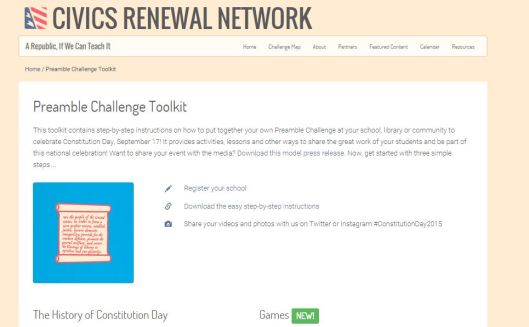
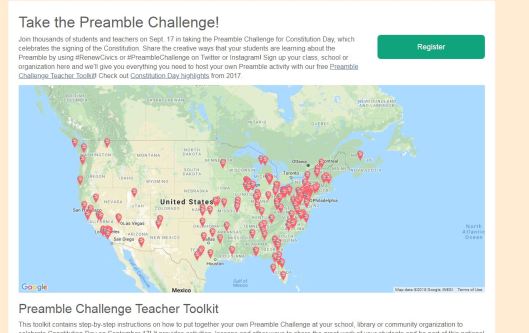

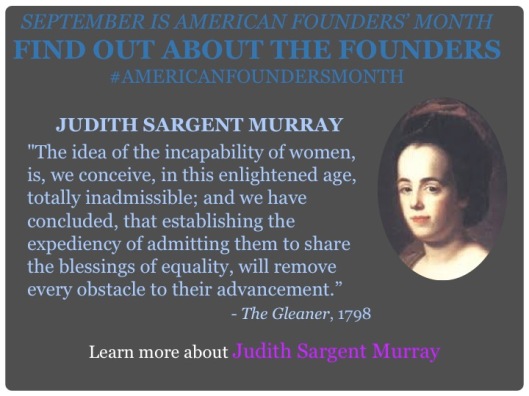
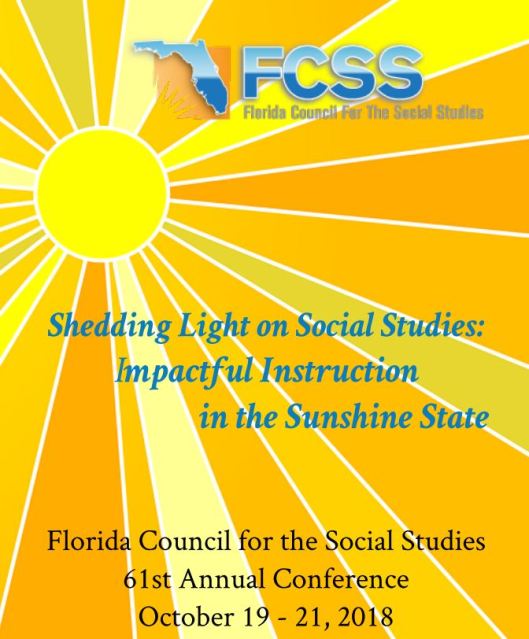
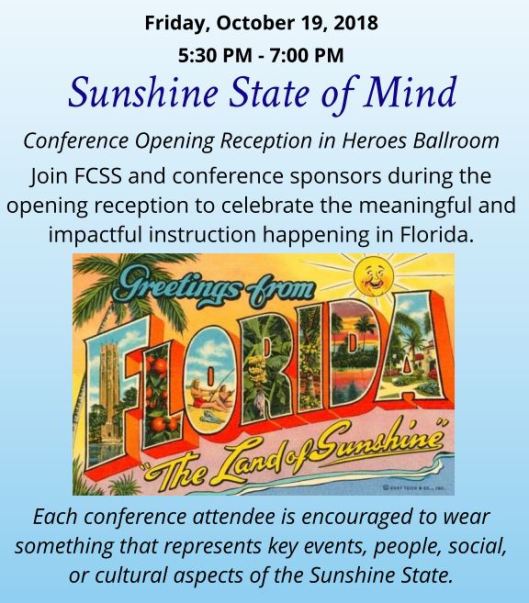



 How is America’s #1 boom town planning for the city’s transportation future?
How is America’s #1 boom town planning for the city’s transportation future?